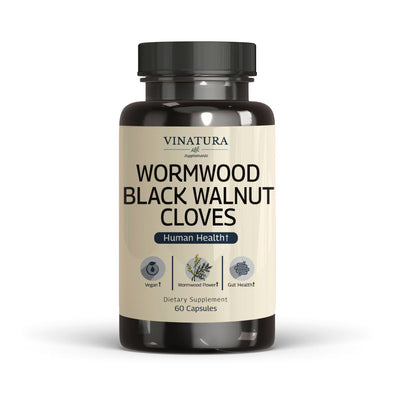
15 Black Turmeric Benefits For Health
Black turmeric is not just a popular culinary spice but also a natural health ingredient with powerful benefits when used correctly. So, what exactly are black turmeric benefits? This article shares how black turmeric can support your health—discover them now!
Before exploring further, please read the disclaimer located at the end of this webpage.
Key Takeaways
- Black turmeric offers comprehensive health benefits, including antioxidant support, memory enhancement, anti-inflammatory properties, skin health, and blood sugar regulation.
- A safe daily dosage ranges from 500 to 2,000 mg of black turmeric.
What Is Black Turmeric?

Black turmeric (Curcuma caesia) is a rhizome plant that can grow over 2 meters tall. It has a dark blue-black color with a pungent smell and bitter taste. The leaves of black turmeric feature small red spots and delicate veins and measure approximately 40–60 cm long and 7–9 cm wide. The flowers grow in clusters, with pale yellow blooms covered in fine hairs.
This rare turmeric variety is hard to cultivate and is predominantly found in India. Black turmeric is widely used not only as a culinary ingredient but also for its impressive health benefits [1]. The extraction process typically involves water distillation at temperatures ranging from 60°C to 100°C.
15 Black Turmeric Benefits
Potent Antioxidant Properties
Black turmeric contains a high concentration of curcumin and other curcuminoids, which are potent antioxidants that help protect the body from oxidative stress. This means it can reduce cellular damage caused by free radicals, potentially slowing down the aging process and reducing the risk of chronic diseases, such as cancer and heart disease.
Brain Health Support
Black turmeric supports brain health by promoting the synthesis of Omega-3 fatty acids crucial for cognitive function. The polyphenolic compound curcumin in black turmeric aids in the absorption and conversion of ALA (alpha-linolenic acid) to DHA (docosahexaenoic acid), a key Omega-3 that supports brain function and memory and reduces the risk of neurodegenerative diseases, such as Alzheimer's [2].
Moreover, turmeric also contains vitamin B6 - a soluble vitamin that helps metabolize proteins, fats, carbohydrates, etc., effectively. Thereby ensuring continuous red blood cell production and optimal nerve conduction.
Anti-Inflammatory Effects
Rich in curcumin, sesquiterpenes, and vitamin C, black turmeric offers significant anti-inflammatory benefits. It neutralizes harmful free radicals from environmental sources like sunlight and pollution, reducing inflammation in cells. This anti-inflammatory effect makes it beneficial for conditions like arthritis, muscle soreness, and even chronic inflammation-related conditions.
Skin Health Benefits

The antioxidants and anti-inflammatory properties of black turmeric, such as curcumin and germacrone… make it a beneficial ingredient for skin health. It can be applied topically or ingested to help reduce acne, inflammation, and hyperpigmentation. A turmeric mask with yogurt or milk can reduce redness, promote healing of acne scars, and brighten the complexion.
Antimicrobial Properties
Black turmeric contains three primary curcuminoids—bisdemethoxycurcumin, demethoxycurcumin, and curcumin—which have been shown to have strong antimicrobial properties. These compounds help control the growth of harmful bacteria, viruses, and fungi, supporting the immune system in maintaining balance and reducing infections.
In addition, scientists from Leeds University (UK) and Münster University, Erlangen (Germany) have researched and confirmed that nanoparticles loaded with curcumin extracted from turmeric will reduce H. pylori bacteria (the cause of gastritis, gastric carcinoma...) from adhering to stomach cells quickly [3].
Liver and Kidney Protection
Curcumin, a central component of black turmeric, can help reduce leptin levels, which are associated with liver diseases like cirrhosis. It also helps regulate kidney function, promoting effective detoxification. However, individuals with liver conditions should use black turmeric cautiously, as excessive use may increase the risk of kidney stones due to its oxalate content.
Antifungal Effects
The polyphenolic compounds in black turmeric, including curcumin, offer antifungal benefits. Studies show it can fight pathogens like Staphylococcus aureus, Salmonella typhimurium, and others that can cause skin infections, stomach ailments, and respiratory issues [4].
Blood Sugar Control
Black turmeric curcumin assists in managing blood sugar by improving the efficiency of enzymes involved in lipid metabolism. It lowers triglyceride and cholesterol levels, potentially supporting individuals with Type 2 diabetes or metabolic syndrome in managing their conditions.
Immune System Boost
Packed with antioxidants, black turmeric bolsters the immune system by creating a “shield” against free radicals that can harm the body. Compounds like curcumin, curcemenol, and sesquiterpene also protect the liver from toxins and support cancer prevention by inhibiting abnormal cell growth.
Thrombolytic Activity
Studies show that ethanol-extracted black turmeric can dissolve blood clots by stimulating plasmin, an enzyme that breaks down fibrin (the main protein in blood clots), without causing side effects. This property may be beneficial for individuals at risk of blood clots or cardiovascular issues [6].
Digestive Health Support

Another use of curcumin in black turmeric is to stimulate bile secretion and enhance gallbladder function, aiding in efficient digestion and nutrient absorption. Therefore, food digestion and nutrient absorption are significantly improved, and most of all, you rarely experience symptoms of stomach pain.
Additionally, its fiber content supports beneficial gut bacteria, helping balance the gut microbiome and reducing digestive issues like constipation and bloating.
Menstrual Cramp Relief
Black turmeric’s properties help blood clot formation, which can promote smoother menstrual flow and reduce cramps. Its high iron content also helps anemia during menstruation, supporting regular, comfortable cycles.
Bone Health Benefits
Black turmeric helps inhibit the development of osteoclast cells, which break down bone tissue, which is particularly beneficial as people age. By doing so, black turmeric promotes bone density and joint strength, helping to reduce the risk of osteoporosis and other age-related bone issues.
Respiratory Health Support
With potent antibacterial and anti-inflammatory qualities, black turmeric helps alleviate respiratory tract infections by eliminating harmful bacteria and viruses. It may offer relief to those with asthma, bronchitis, or other respiratory conditions, helping them breathe easier.
Oral Health Benefits
Curcumin’s antimicrobial action supports oral health by reducing inflammation in gums, reducing bad breath, and promoting a brighter, healthier smile. It can be used as a mouth rinse or toothpaste ingredient for additional oral health benefits, such as reducing plaque buildup and improving gum health.
How to Use Black Turmeric for Health

You can incorporate black turmeric into your diet in many ways, such as adding it to meals, making tea, mixing it with smoothies, or combining turmeric powder with honey. Examples include:
- Daily meals: Add fresh or powdered black turmeric for flavor and color.
- Smoothies and juices: Balance turmeric’s bitter taste with ginger, lemon, cucumber, or kale.
- Tea: Add a few drops of black turmeric extract to your tea for an easy health boost.
Currently, many supplements include optimal doses of curcumin or curcuminoids derived from black turmeric, making it convenient for users to support their health as desired.
Safety and Dosage
The ideal dosage of black turmeric is 500–2,000 mg daily, though this varies based on health conditions and usage. Consult a doctor for personalized advice, and consider taking black turmeric with black pepper to enhance absorption [7].
Side Effects and Considerations
Black turmeric is generally safe when used properly, though high doses can cause nausea or diarrhea. Avoid turmeric if you’re about to undergo surgery, as it may slow blood clotting. Pregnant or breastfeeding women should also avoid it [7].
FAQs
Is Black Turmeric Good for You?
Yes, black turmeric offers multiple health benefits, including liver, kidney, bone, skin, and oral health support. However, consult a doctor before use to avoid unwanted side effects.
How Much Black Turmeric Per Day?
A daily dosage of 3,000 mg is safe for up to 3 months. For higher doses (8,000 mg), limit use to 2 months. The FDA recommends a safe daily dose between 4,000–8,000 mg [8].
What Are the Benefits of Black Turmeric for Skin?
Black turmeric’s antibacterial and anti-inflammatory effects make it practical for acne treatment and conditions like psoriasis and eczema, promoting healthier skin. Besides, people with psoriasis, eczema, etc., can also use black turmeric as a method to restore the skin and reduce bacteria quite well.
What Does Black Turmeric Do for the Body?
Black turmeric provides immunity, antibacterial, and anti-inflammatory support and improves skin tone, digestion, and bone health. However, consistent, long-term use is necessary to see benefits.
What Is the Difference Between Turmeric and Black Turmeric?
Black turmeric (Curcuma caesia) originates from Northeast India. It has a dark skin with black or purple flesh. In contrast, regular turmeric (Curcuma longa) is common in South Asia and is yellow or orange. Black turmeric has a more robust, bitter taste and higher curcuminoid content, which enhances its anti-inflammatory and antibacterial properties.
Conclusion
We hope this article has helped you understand the benefits of black turmeric and how to use it effectively. Thanks to that, you can enjoy many nutrients that are good for your health, helping your body become healthier without leaving any side effects on your body. In addition, please always consult a doctor for personalized advice to avoid side effects and maximize health benefits.
References
- [1] Joseph, D., & Venugopal, A. (2018, December 7). MEDICINAL PROPERTIES OF BLACK TURMERIC: A REVIEW. Retrieved October 27, 2024, from ResearchGate website: https://www.researchgate.net/publication/329487681_MEDICINAL_PROPERTIES_OF_BLACK_TURMERIC_A_REVIEW.
- [2] Wu, A., Noble, E. E., Tyagi, E., Ying, Z., Zhuang, Y., & Gomez-Pinilla, F. (2014). Curcumin boosts DHA in the brain: Implications for the prevention of anxiety disorders. Biochimica et Biophysica Acta (BBA) - Molecular Basis of Disease, 1852(5), 951–961. https://doi.org/10.1016/j.bbadis.2014.12.005.
- [3] Vaclav Vetvicka, Vetvickova, J., & Fernandez-Botran, R. (2016). Effects of curcumin on Helicobacter pylori infection. Annals of Translational Medicine, 4(24), 479–479. https://doi.org/10.21037/atm.2016.12.52
- [4] Zorofchian Moghadamtousi, S., Abdul Kadir, H., Hassandarvish, P., Tajik, H., Abubakar, S., & Zandi, K. (2014). A Review on Antibacterial, Antiviral, and Antifungal Activity of Curcumin. BioMed Research International, 2014, 1–12. https://doi.org/10.1155/2014/186864
- [5] Turmeric Benefits. (2024, June 20). Retrieved October 28, 2024, from Hopkinsmedicine.org website: https://www.hopkinsmedicine.org/health/wellness-and-prevention/turmeric-benefits.
- [6] Syeda Nishat Fathima. (2022, February 21). Evaluation of in vitro thrombolytic activity of ethanolic extract of Curcuma caesia rhizomes. Retrieved October 28, 2024, from ResearchGate website: https://www.researchgate.net/publication/358751772.
- [7] Meixner, M. (2018, June 11). Turmeric Dosage: How Much Should You Take Per Day? Retrieved October 28, 2024, from Healthline website: https://www.healthline.com/nutrition/turmeric-dosage.
- [8] Hewlings, S., & Kalman, D. (2017). Curcumin: A Review of Its Effects on Human Health. Foods, 6(10), 92–92. https://doi.org/10.3390/foods6100092.
Author

Product Disclaimer
The dietary supplement products mentioned on this website are formulated based on scientific research and adhere to FDA guidelines for dietary supplements. However, the content of the articles has not been evaluated by the Food and Drug Administration (FDA) and is not intended to promote or endorse any specific product. Any products sold on this website are not intended to diagnose, treat, cure, or prevent any disease.
Opinions and Endorsements
Any claims, statements, or opinions expressed in the articles are those of the author(s) and do not necessarily reflect the views or opinions of the manufacturers of the dietary supplement products. The products sold on this website are separate from the content of the articles and are not directly endorsed or associated with the information presented here.
Liability Disclaimer
The author(s) of the articles, website, and manufacturers of the dietary supplement products do not assume any liability for any potential consequences arising from the use of the information provided in the articles. It is recommended that individuals consult with a qualified healthcare professional before making any dietary or lifestyle changes, including the use of dietary supplements.
Product Usage
Please refer to the product labels and packaging for specific usage instructions and guidelines for the dietary supplement products sold on this website.
Customer Support
For any concerns or questions regarding the dietary supplement products, please contact our customer support team, who will be more than happy to assist you.





Leave a Comment
Be the first to comment.
What do you think?